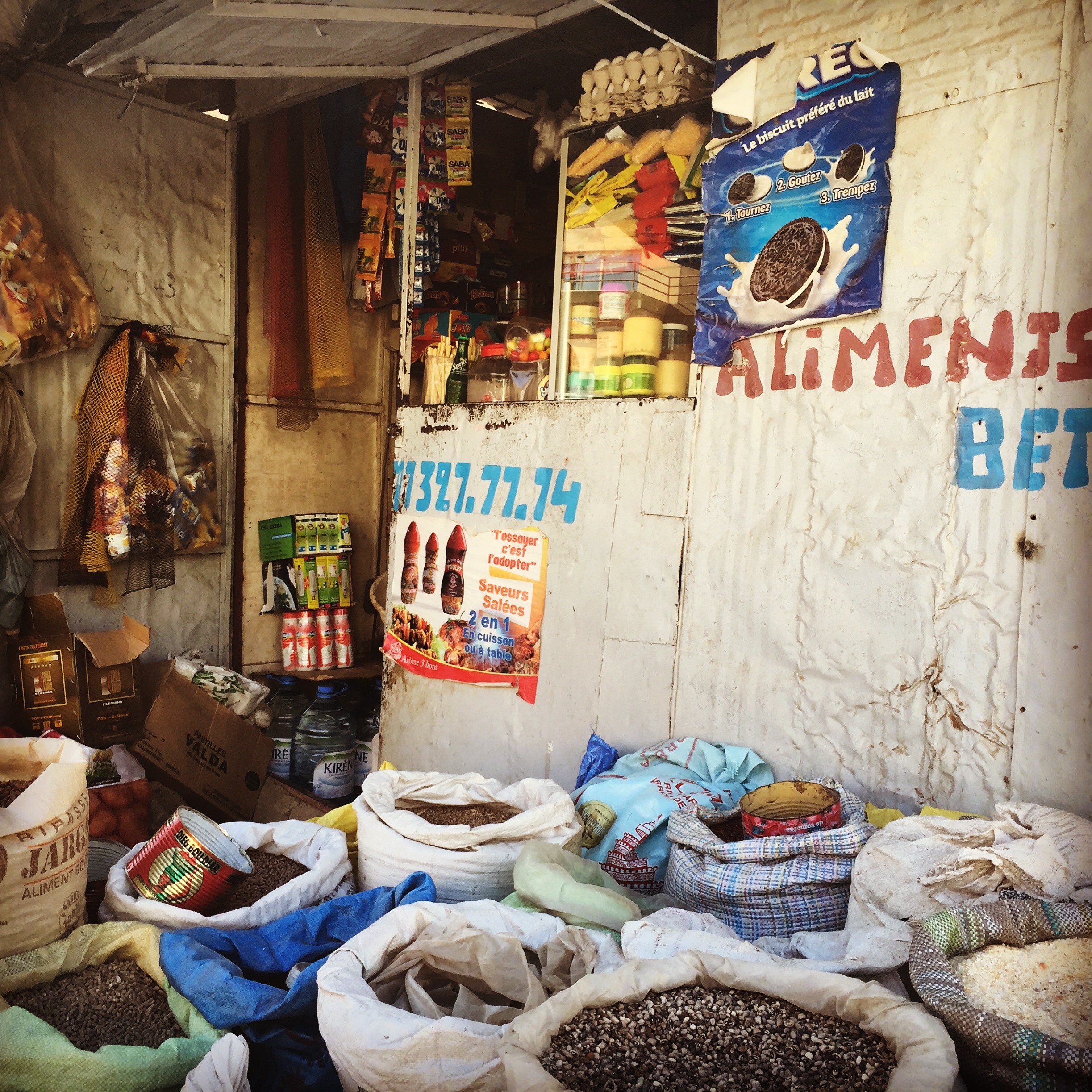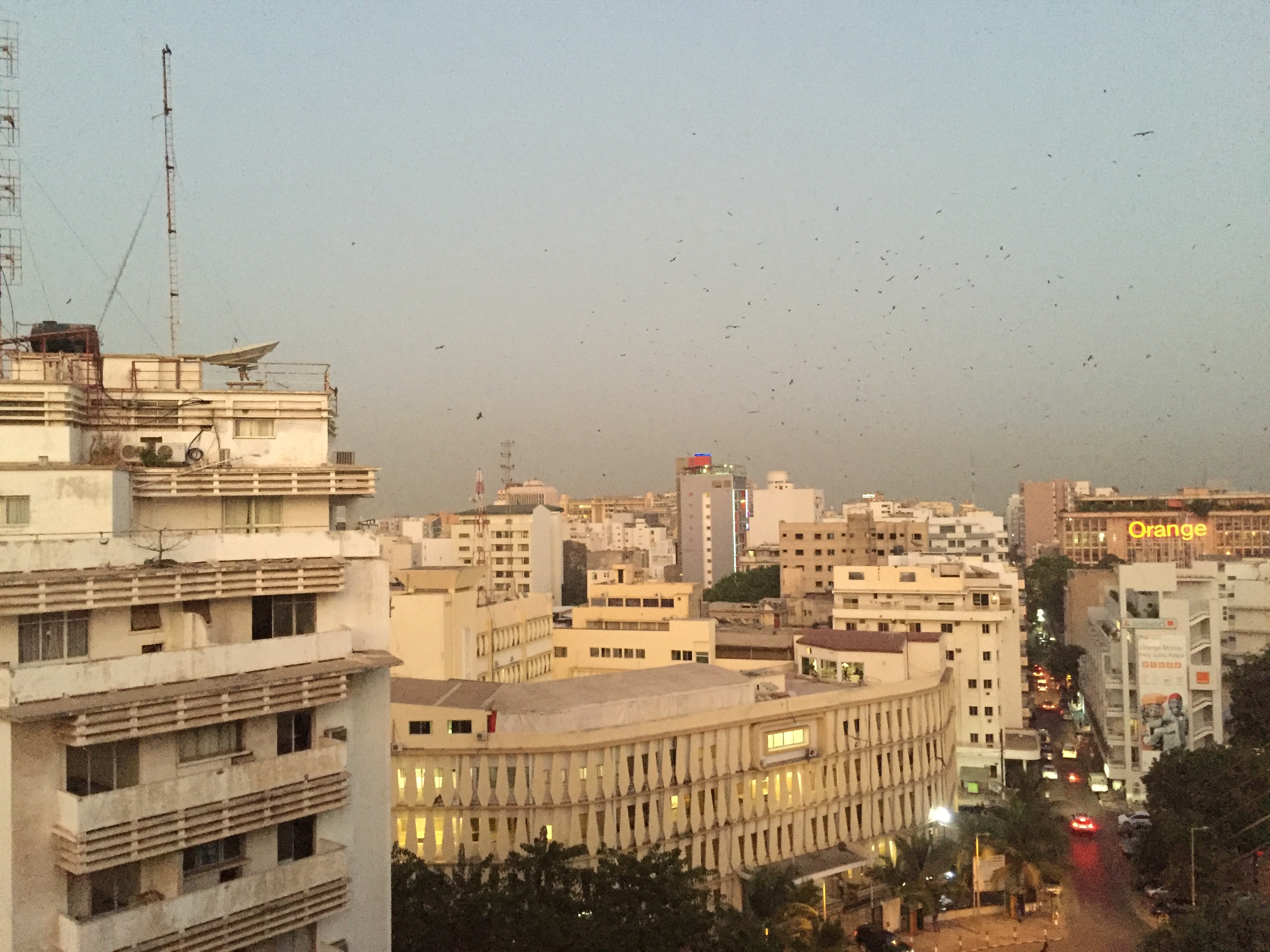In January, I attended an upscale cocktail party in a gorgeous high rise apartment in the plateau – Dakar’s downtown. In the taxi on the way there, my friend Nafi* and I fussed over whether or not we were well dressed enough for the event hosted by a person of influence.
I attend these things from time to time as something of Nafi’s sidekick. I enjoy grazing whatever food is available and some light banter as she networks with the poise and grace only she can. This is an exciting time for young women professionals everywhere, and Dakar in particular.
At this party, the food – vegetarian – was provided by a new non-Senegalese-owned catering business that I will refer to as Delite*. The owners of Delite were ‘tubaabs’ – white Westerns.
The food was terrible. It was poorly prepared while the presentation was unforgiving. It reminded me of potlucks I would attend in university where we haphazardly slopped together something and put it in whatever dish was found on our way out the door. Delite had at least five employees present, overstaffed for this small event in a modestly sized apartment. The employees, also all tubaabs, were dressed casually, in outfits more suitable for the beach or a yoga class – a stark contrast to the professional attire of the party attendees.
The host invited the owner of Delite to say a few words about their business.
So she began: she explained that they intended this food service to be a social enterprise and thus help young Senegalese to create their own enterprises. Their ultimate objective was to promote vegetarianism, and mentor young Senegalese entrepreneurs to do the same. Delite would provide consulting in exchange for royalties if entrepreneurs agreed to use Delite’s logo, much in line with a franchise format.
First, there is nothing socially benevolent or even benign in promoting vegetarianism in the Sahel.
I gave Nafi one of those exasperated side-glances. What nerve – to perform so poorly just to assume expertise and authority to train others? But I was equally irked by the overt display of support and gratitude one party attendee offered following her speech. He, an older Senegalese gentleman expressed gratitude, suggesting young Senegalese entrepreneurs would benefit from Delite and the imported expertise.
First, there is nothing socially benevolent or even benign in promoting vegetarianism in the Sahel. Promoting a meat-free diet has grave implications in Senegal which go beyond simply challenging honoured traditions. Livestock production is an essential feature of Senegal’s national economy, and of the West African region. While crop production is also essential, the semi-arid climate cannot support the extensive agriculture necessary to provide a plant-based diet, certainly not nation-wide.
It is a country strongly impacted by climate change. Senegal’s urban populations are reliant on the country’s urban and rural livestock production. Excluding livestock producers from economic participation would not only be harmful to their livelihoods, but to the larger population that relies upon the success of those livelihoods. Livestock production – semi-mobile to mobile pastoralism – in the Sahel is challenged by climate change, but does not contribute to it. This is in contrast to the ways in which large-scale ranching in Europe and North America do in fact contribute to climate change.
What guidance would they provide to Senegalese entrepreneurs?
Quite simply, promoting a meat-free diet in the Sahel is both detrimental to local and regional economies, threatens historically significant livelihoods, and jeopardises population nutrition.
Quite apart from this ignorance, Delite had exhibited poor performance, and an utter lack of professionalism. What guidance would they provide to Senegalese entrepreneurs?
Senegalese businesses have been honed by competition. And few entrepreneurs are so blind to the realities of the intersections of economy and food production in their nation as to promote a Western-centric diet that is elitist even in Europe and North America, and then to label such an endeavor as a ‘social’ enterprise. Senegalese entrepreneurs, successful or not, tend to know the importance of professionalism and quality; they also tend to know their targeted market, and the realities of the social, economic, and political worlds that choreograph their navigation towards success.
Perhaps Senegalese entrepreneurs could teach the owners of Delite a thing or two.
My run in with Delite is an example of insidious Western paternalism who head to places like Dakar with every intention to do good benevolent things. Social enterprise often seems like a way to stop the paternalism that is rife within the development sector, however this just isn’t so.
Places like Europe and Senegal are much more interconnected through thanks to social media and the web. Personal relationships and professional networking can take place over vast expanses, and this can make distances seem less significant and making foreign places seem much less foreign.
But it is not a stand-in for expertise or a lifetime of experience. It cannot replace the way in which actually growing and living in a place allows for a depth of knowledge and a nuance of understanding for which Facebook newsfeeds cannot compensate.
Entrepreneurship in Dakar is exciting and competitive, and is attractive to anyone.
Had the founders of Delite spent the majority of their lives in Dakar, they probably would not have developed such a poor concept and labeled it social entrepreneurship. Yet, they still received accolades from a Senegalese national. And due to economic disparities, they were able to develop a terrible concept far enough to promote it at a party attended by a potential clientele-base that would thrill any entrepreneur.
Entrepreneurship in Dakar is exciting and competitive, and is attractive to anyone. Engaging in concept development and business endeavours with trusted and honoured friends and colleagues is a great way to merge creativity and success. Also like I said, because of social media, it is now more and more likely that those trusted friends and colleagues could be from very different backgrounds.
So, by all means, engage. But the paternalism has just got to go.
*All proper names are pseudonyms.


